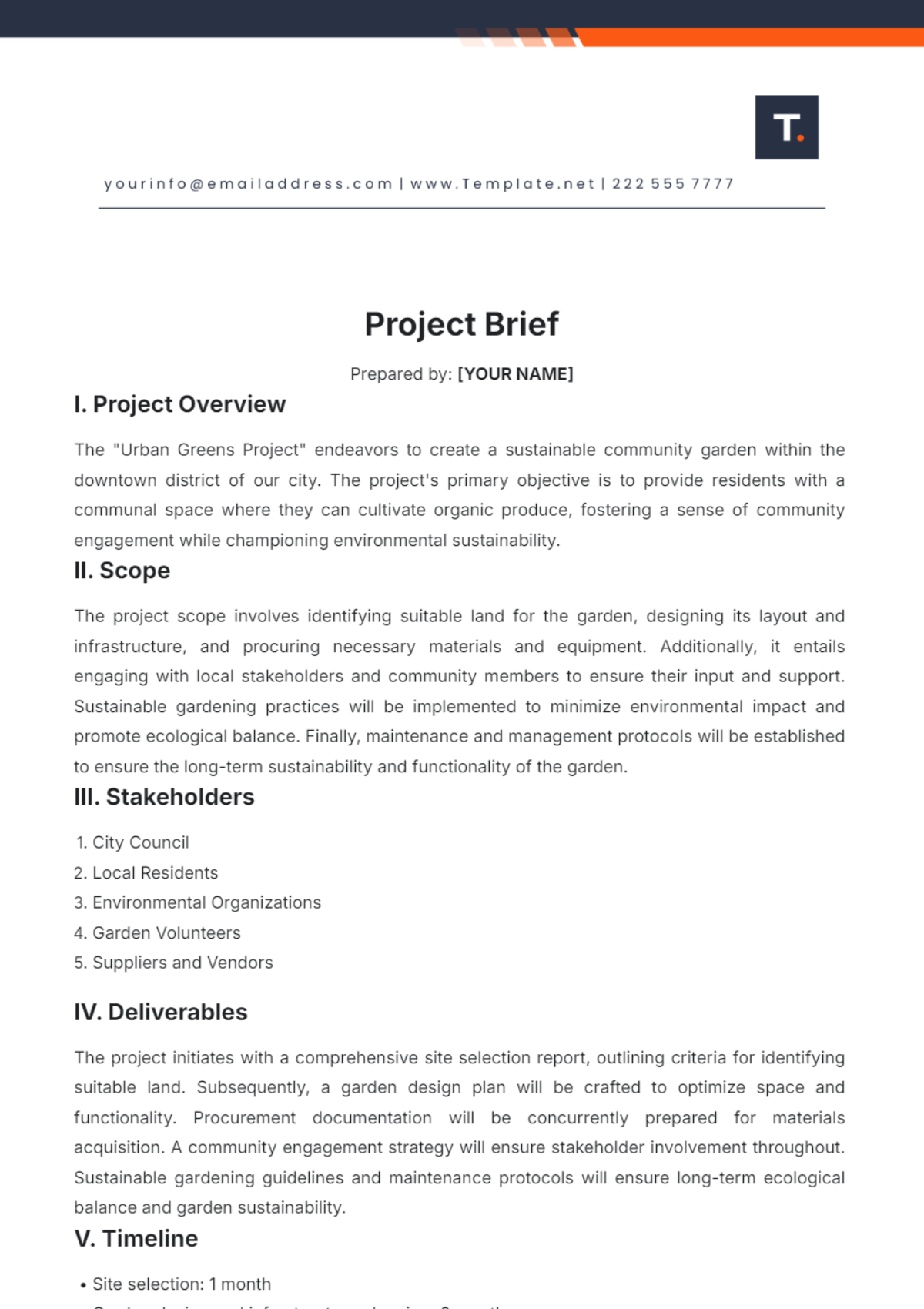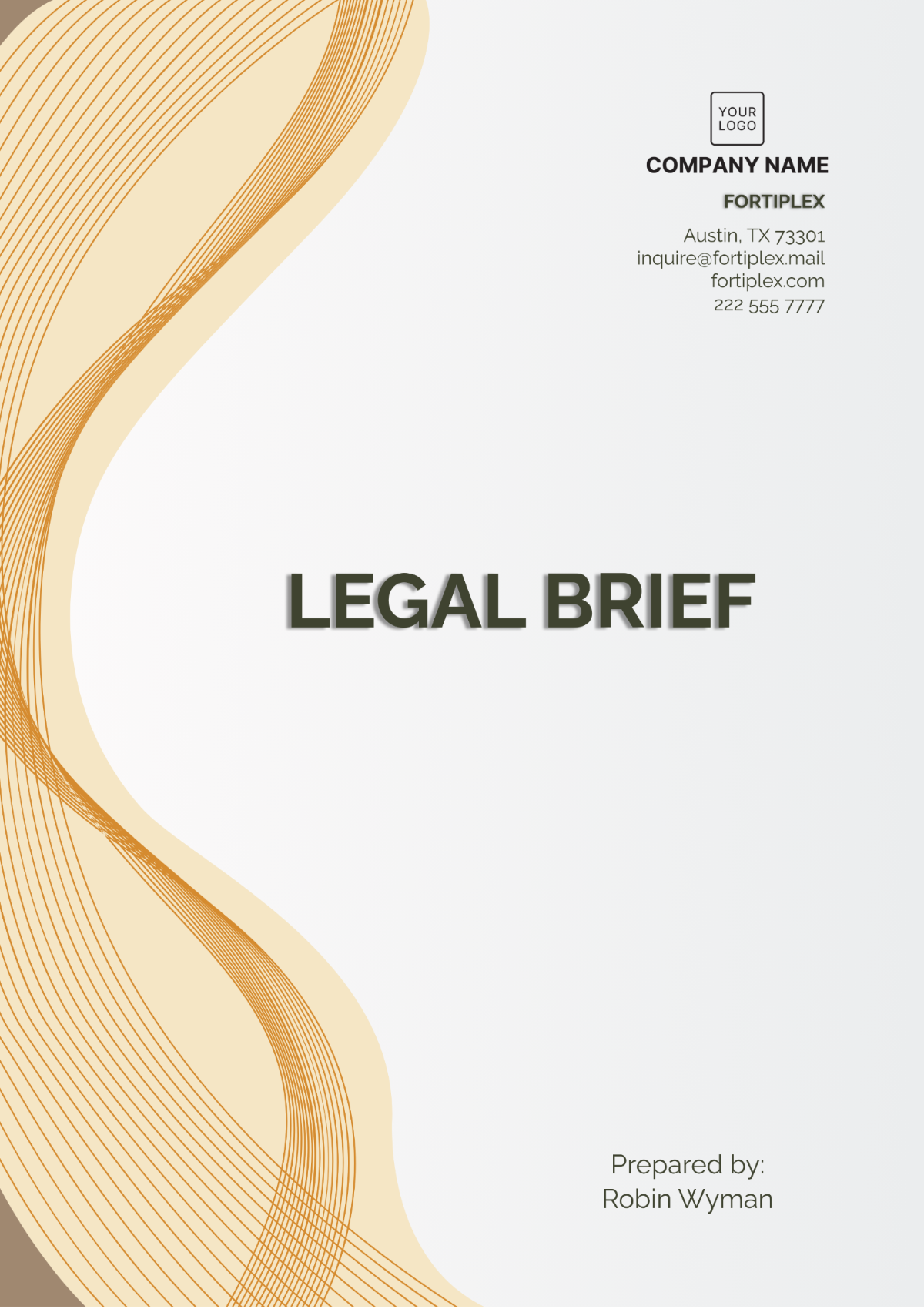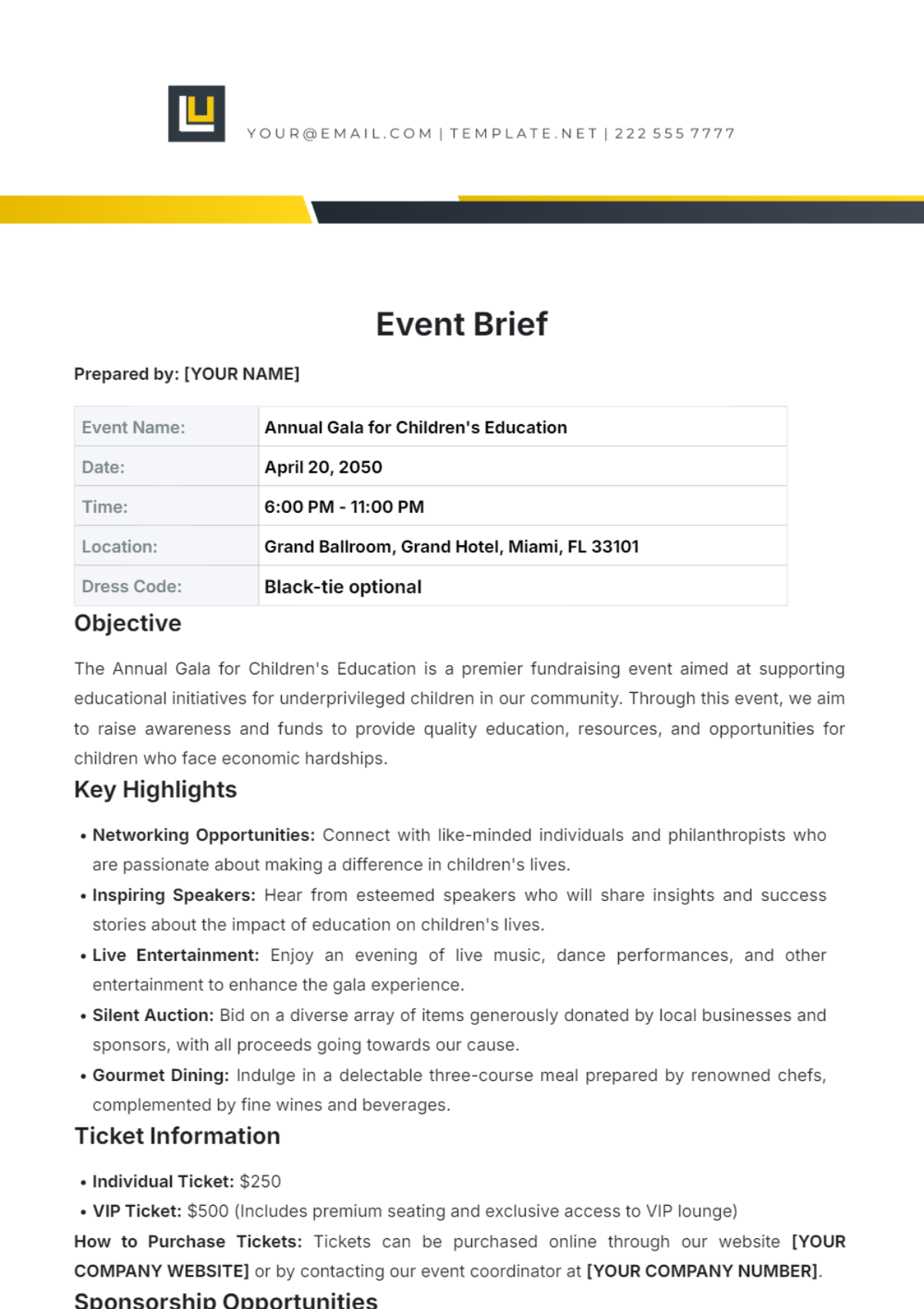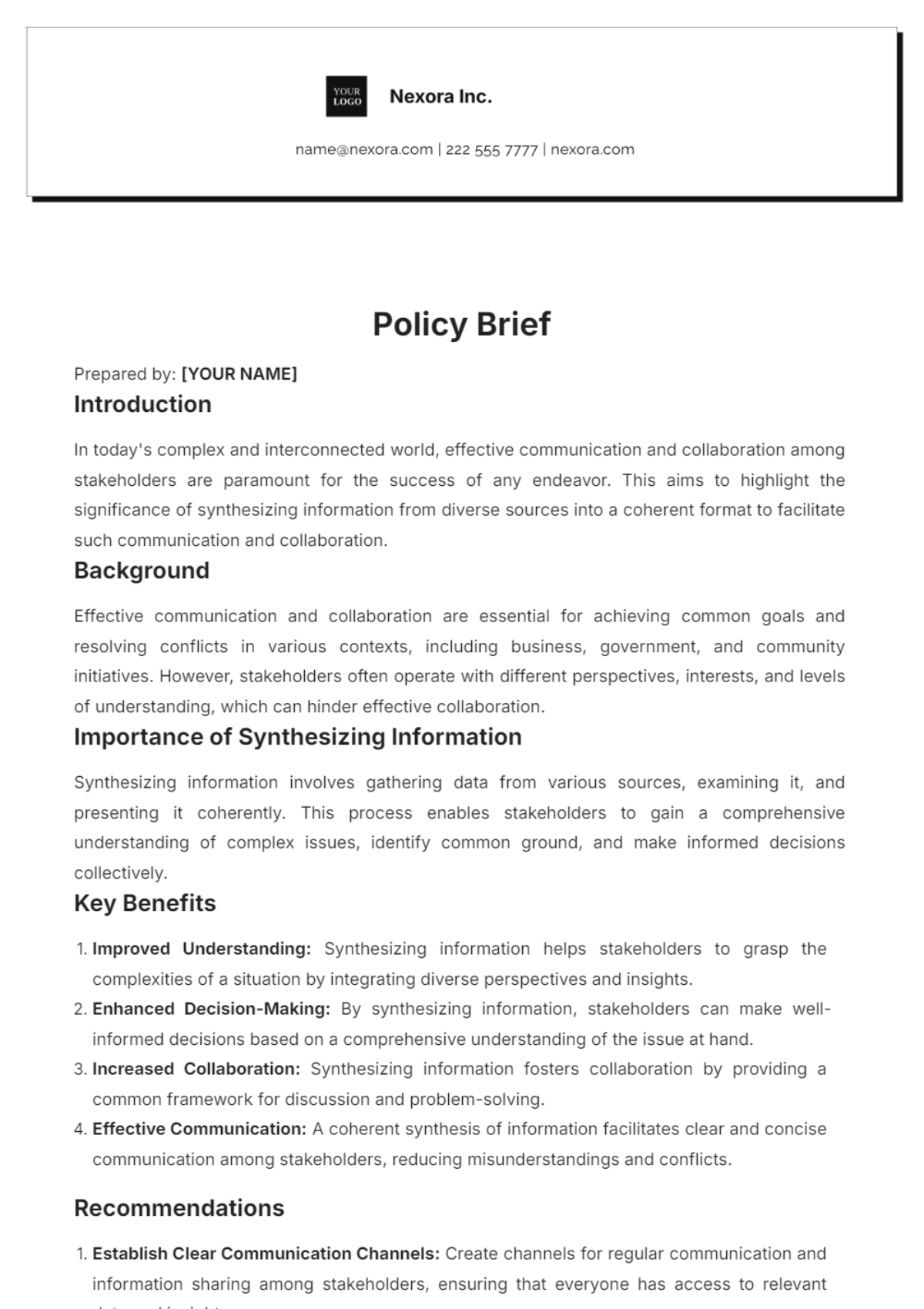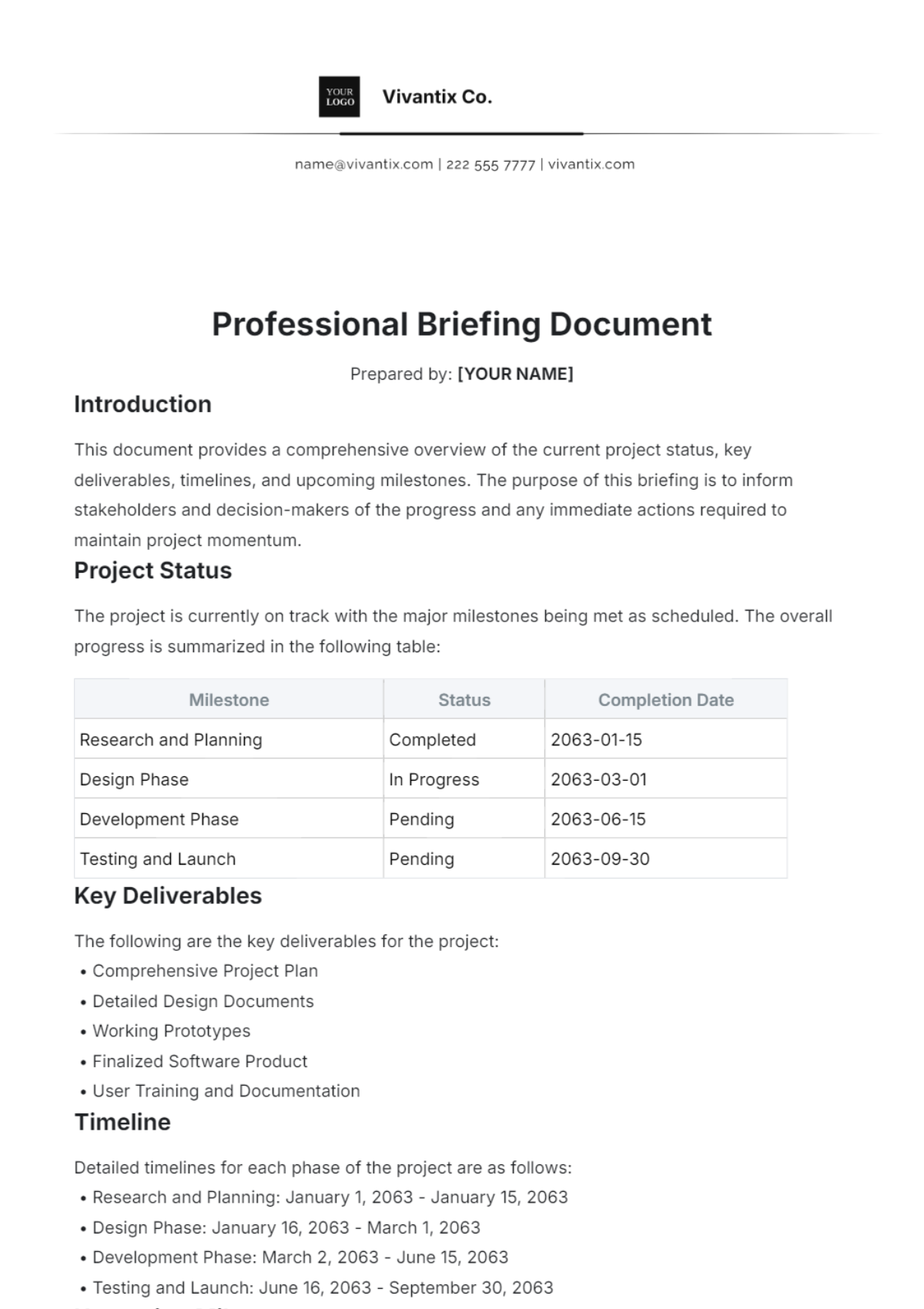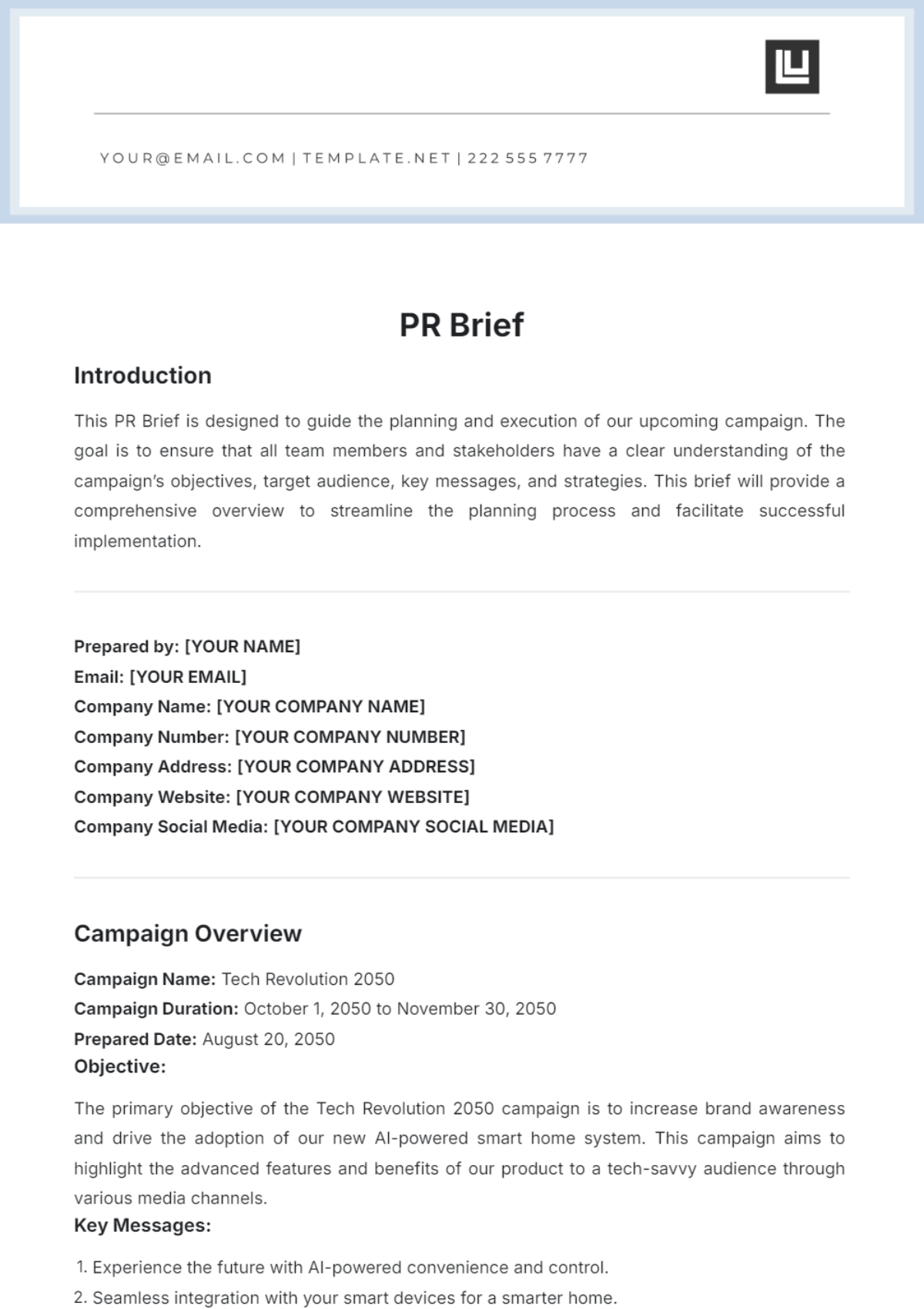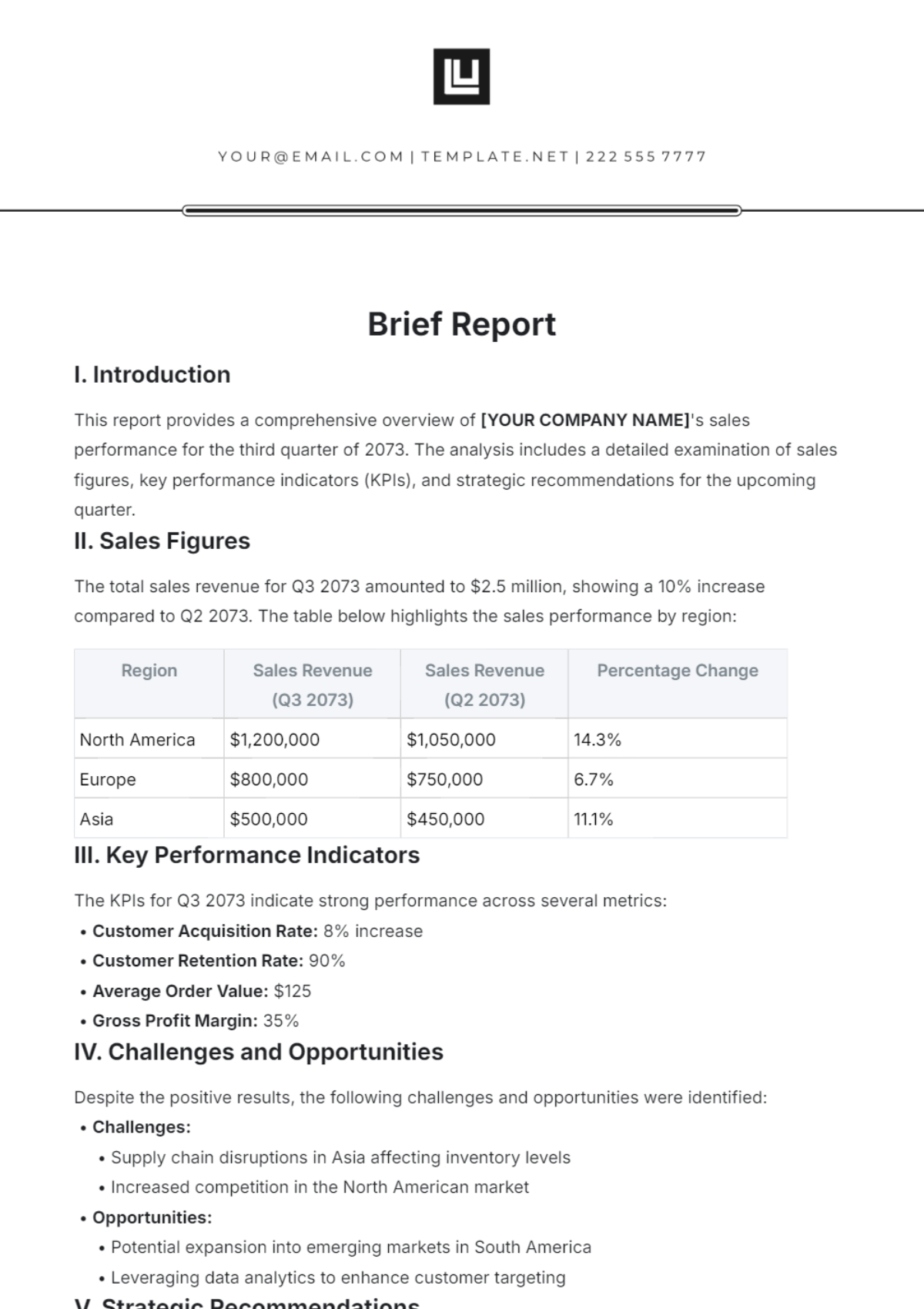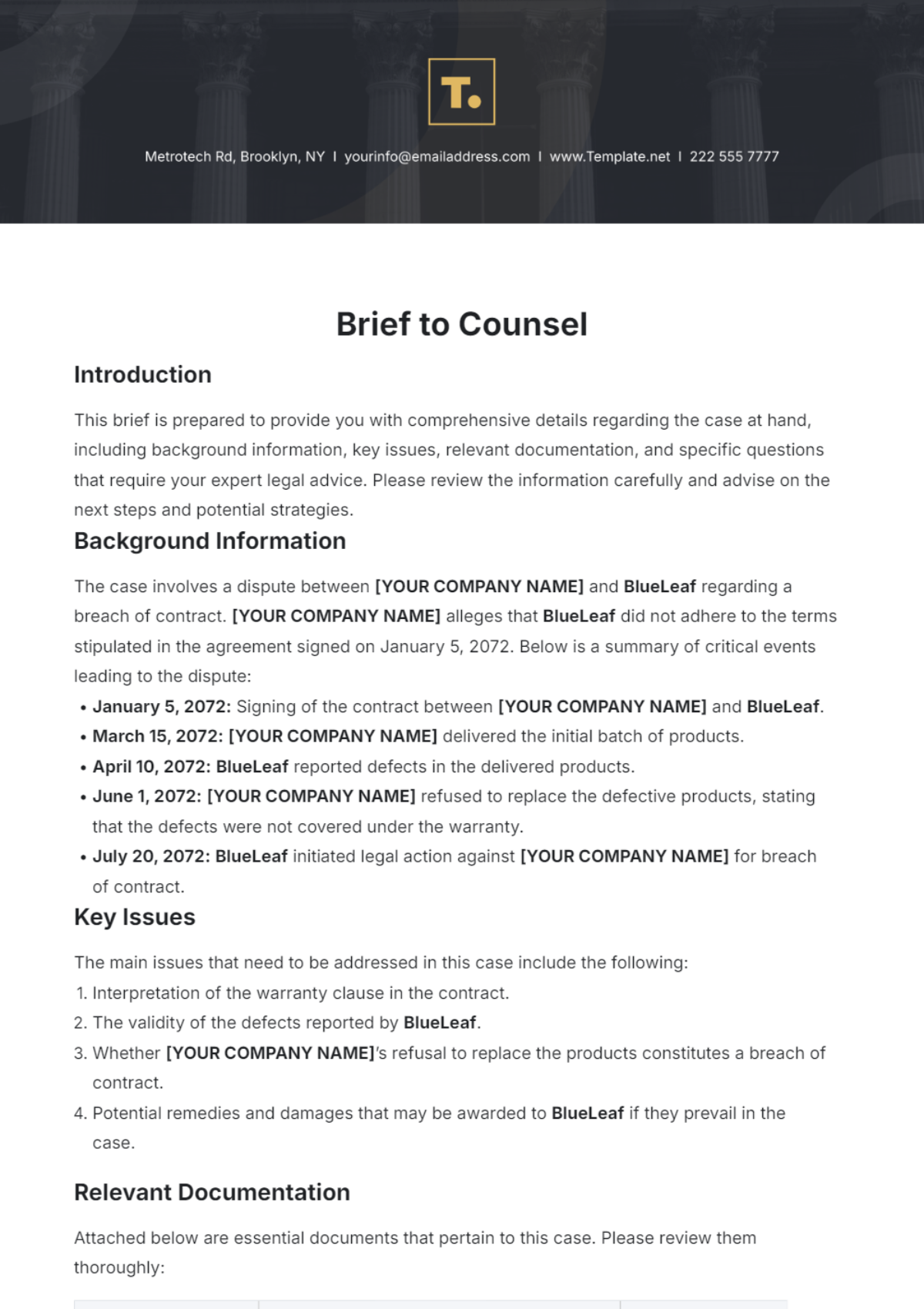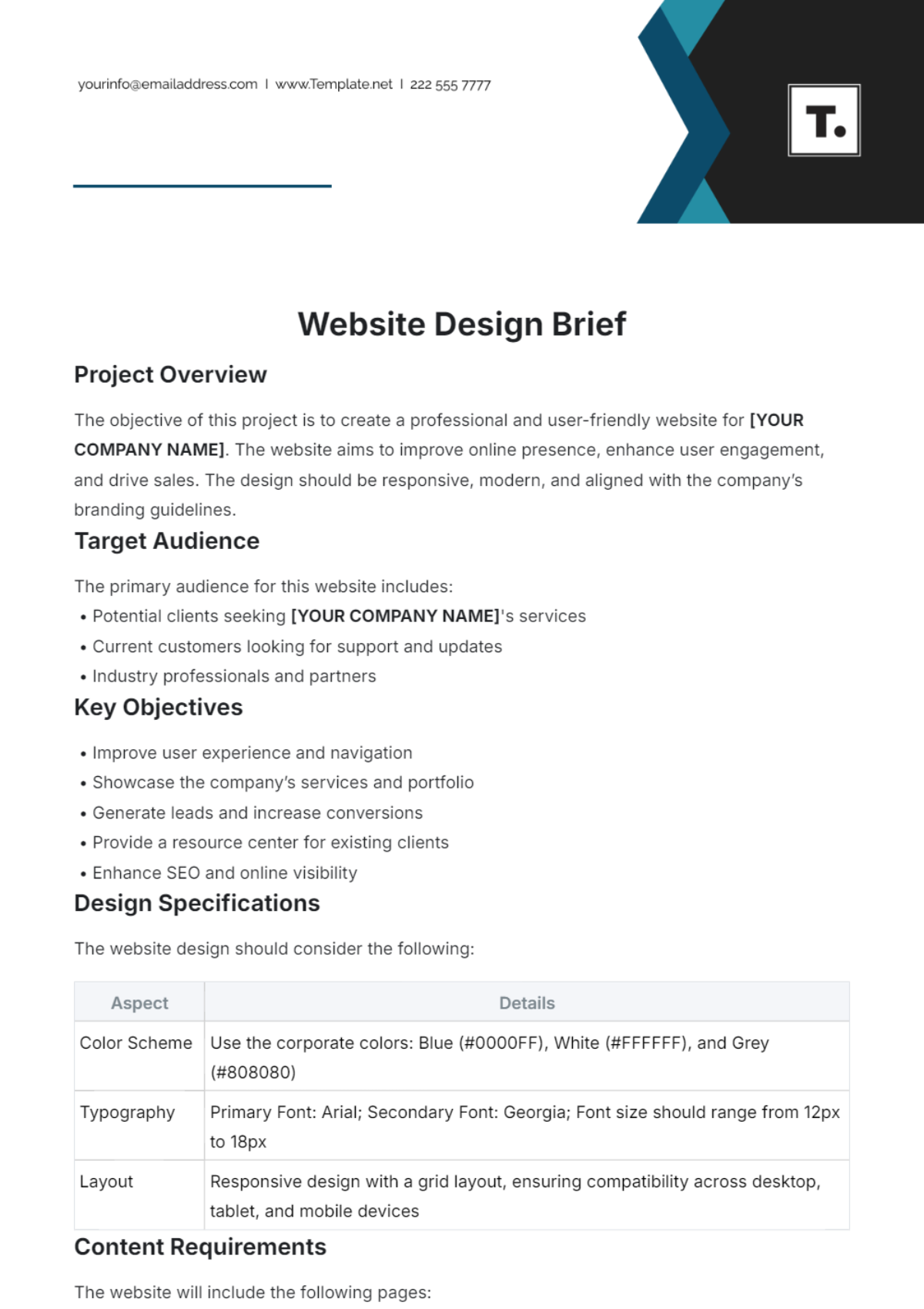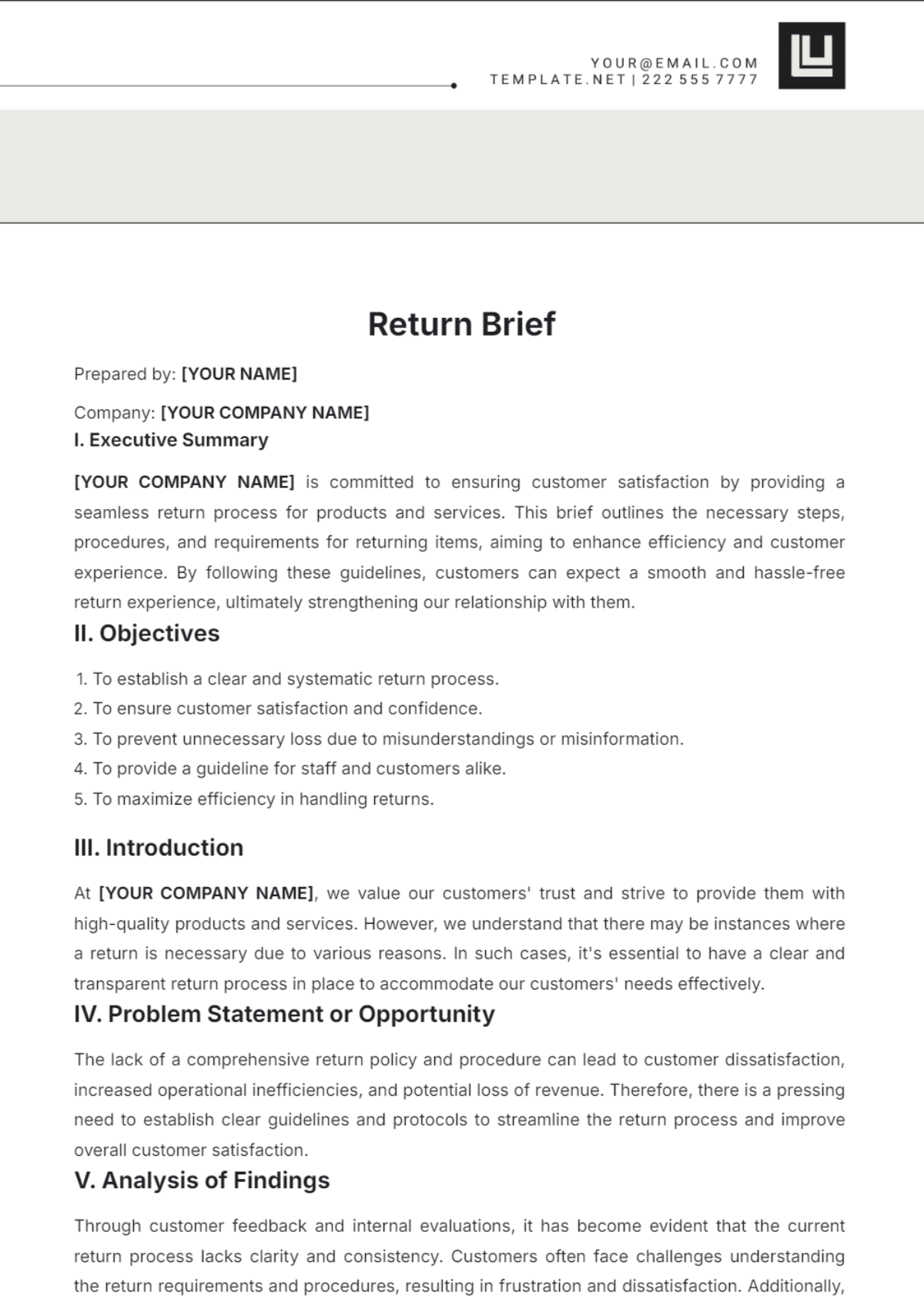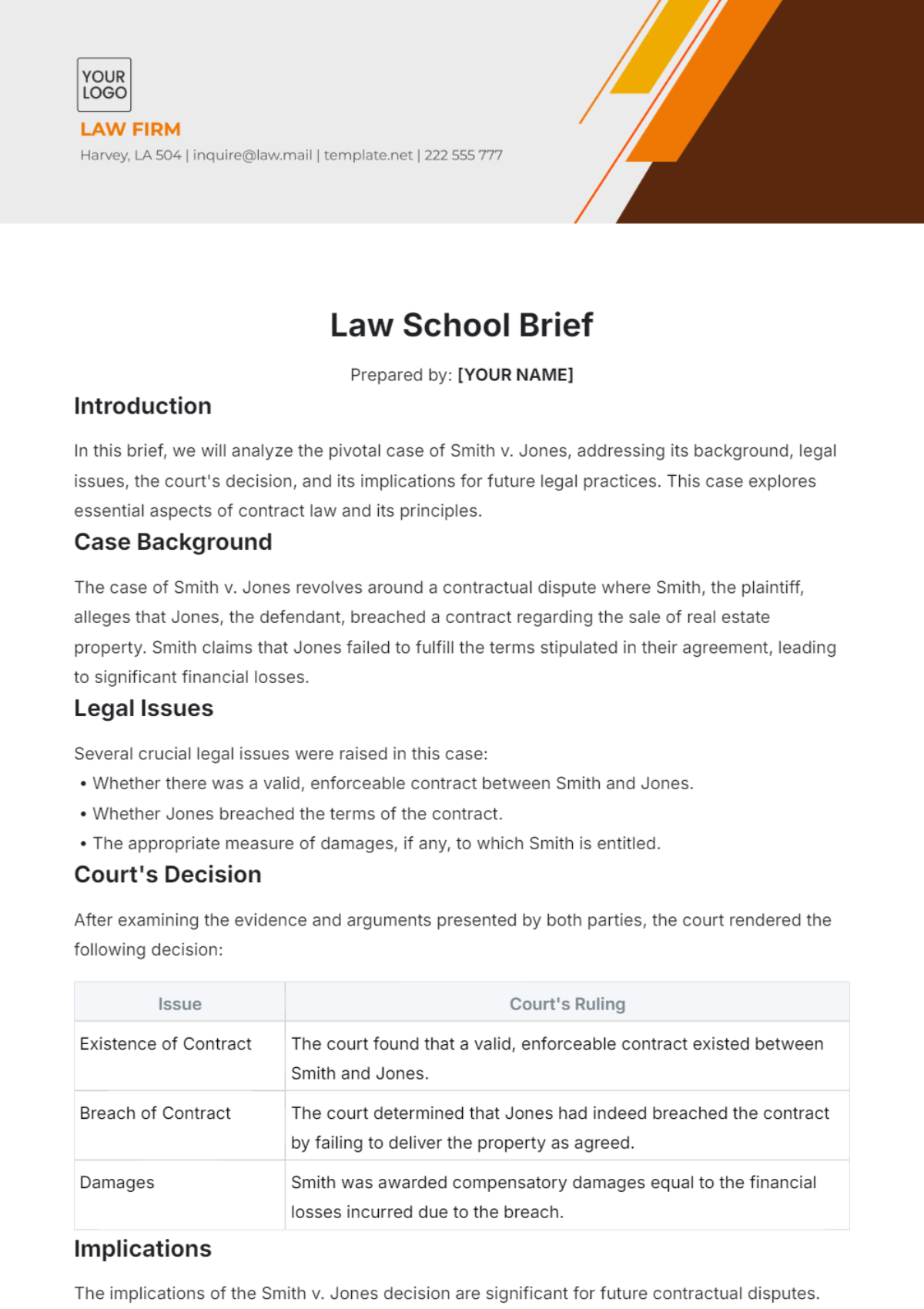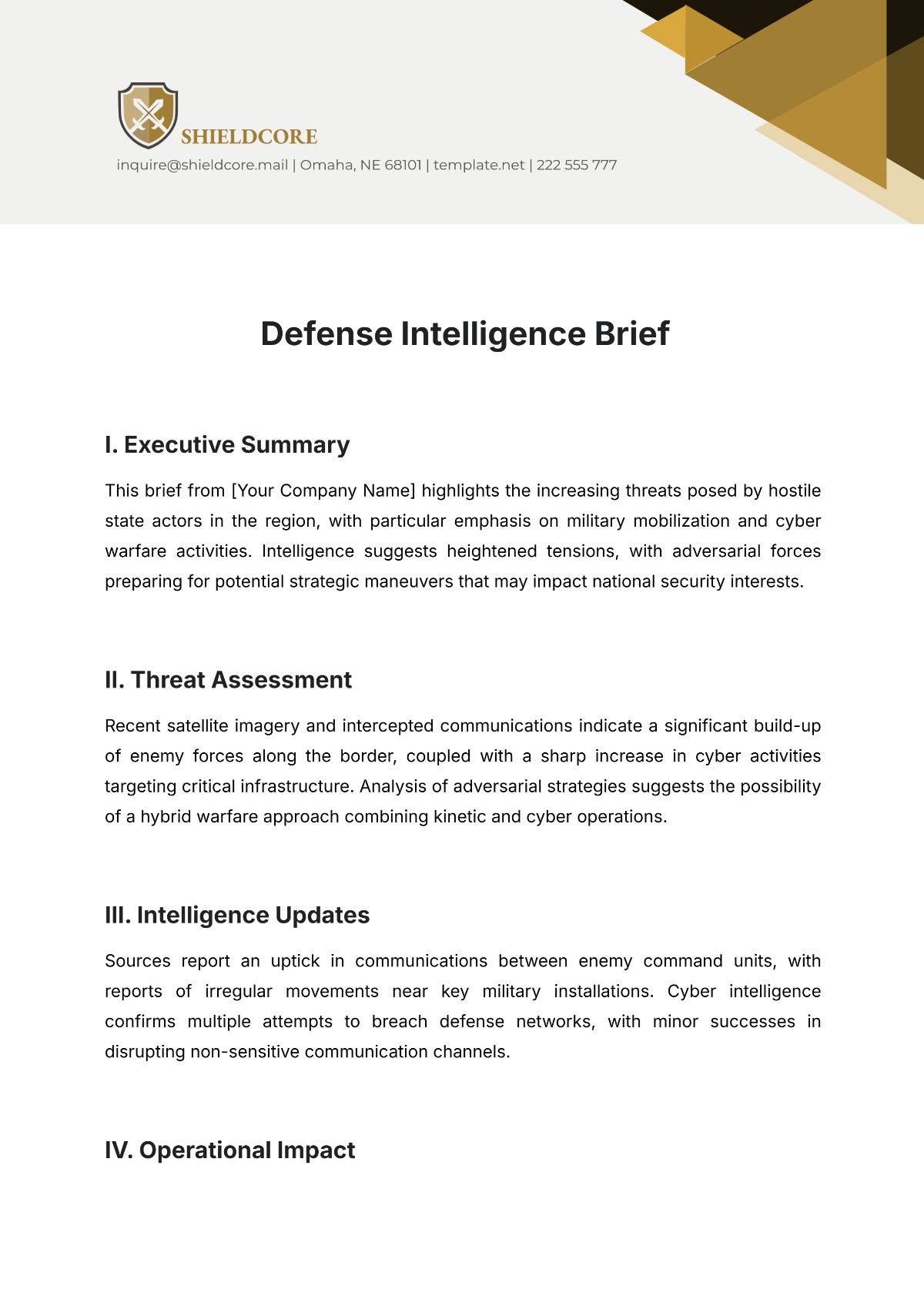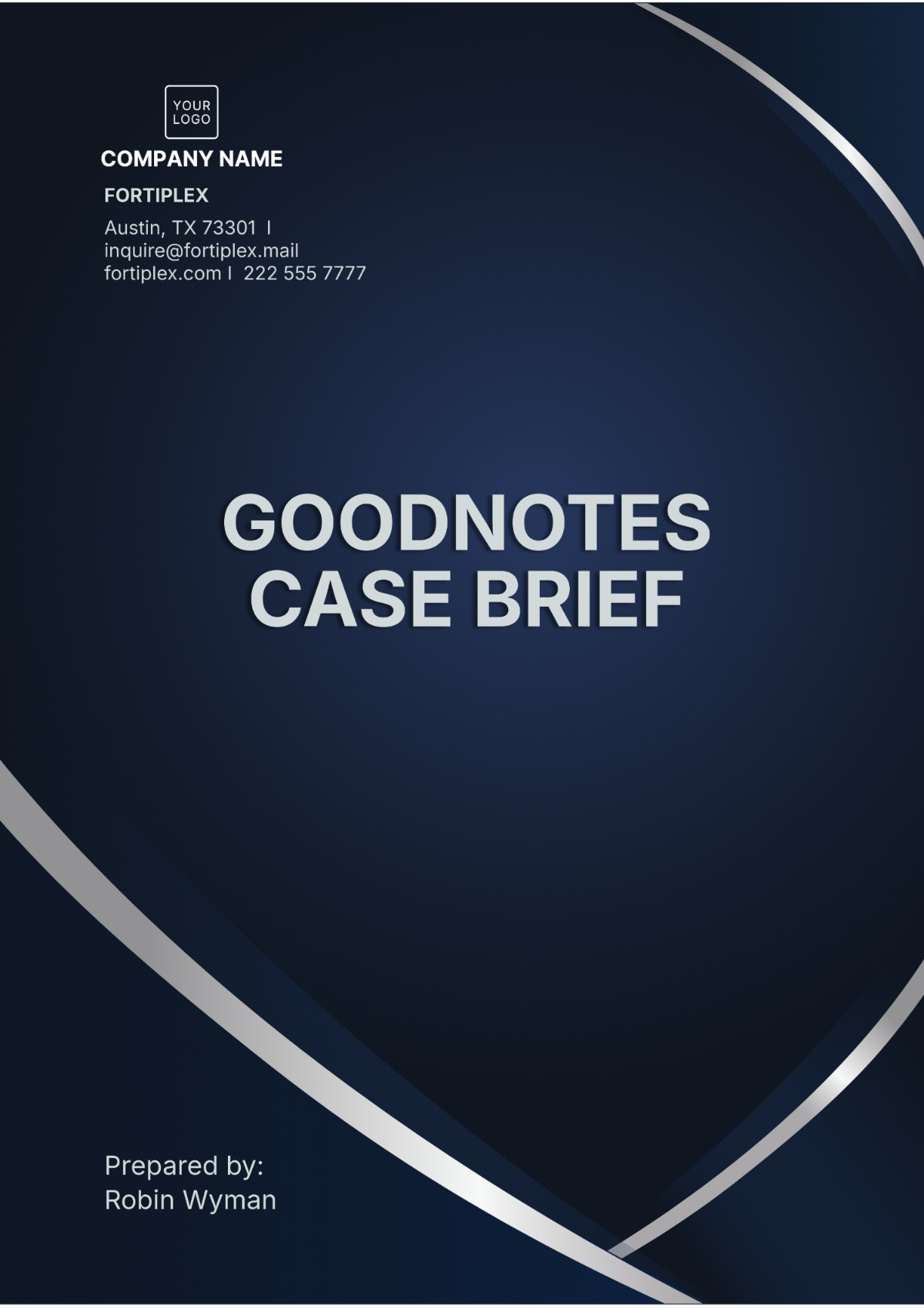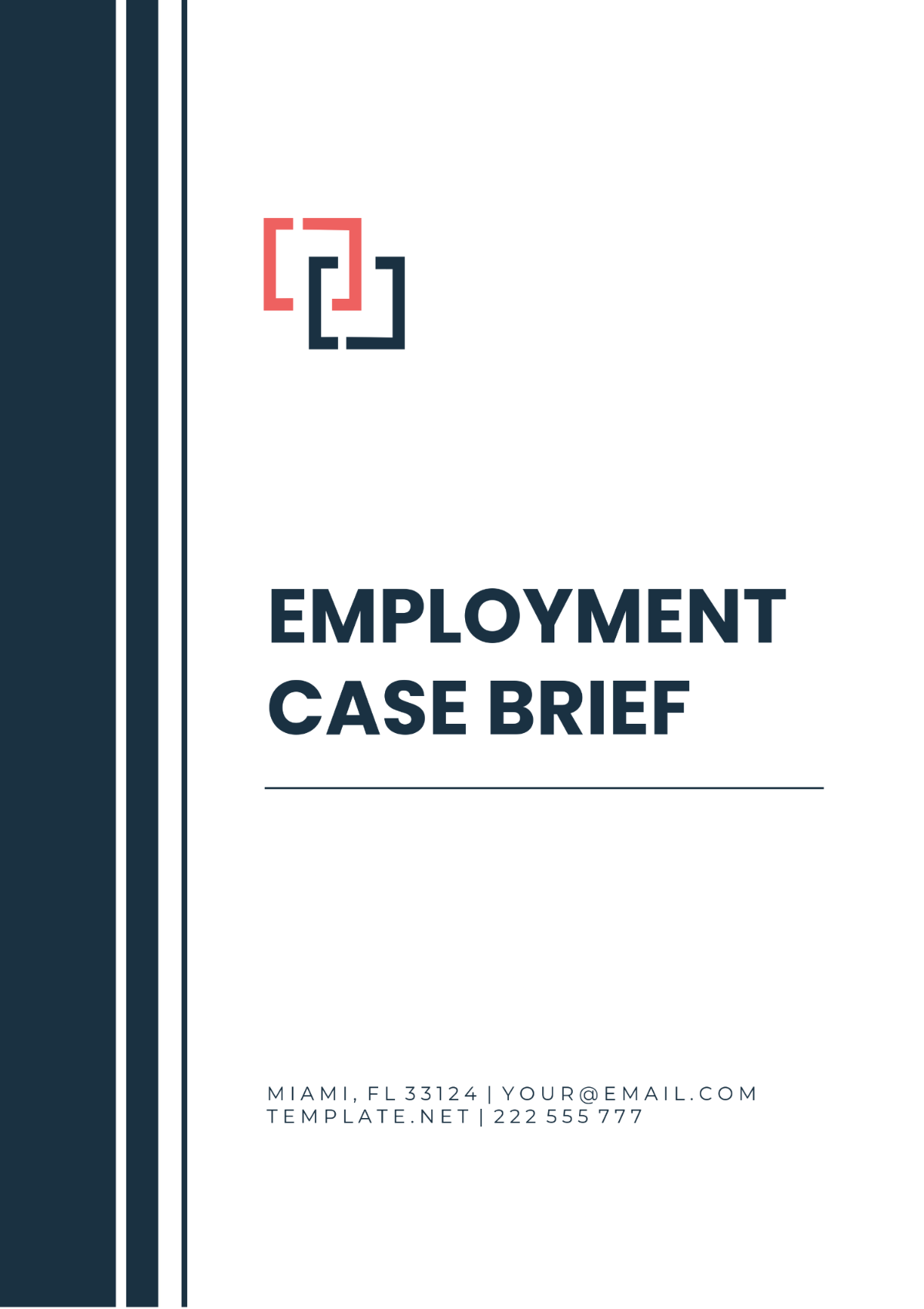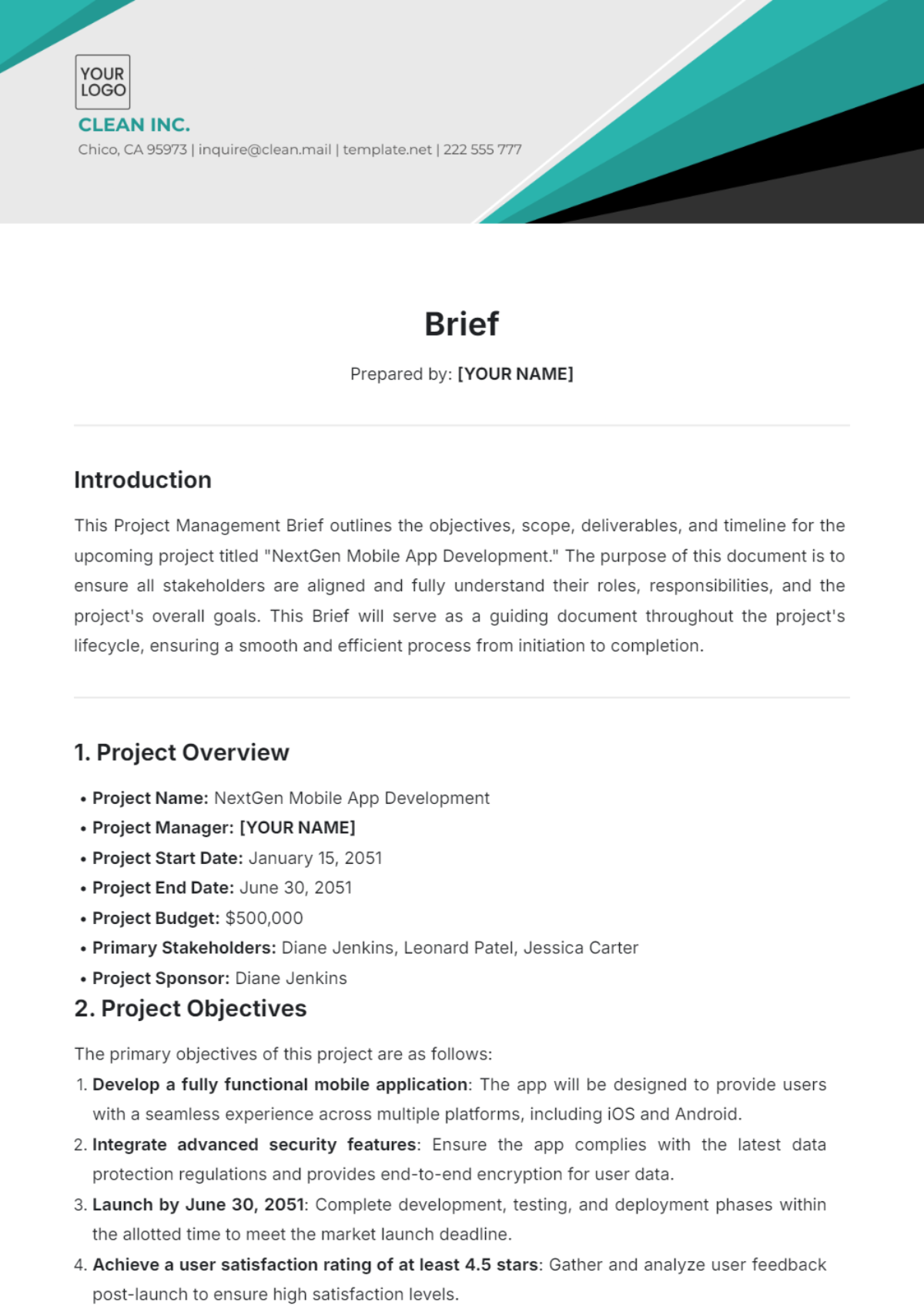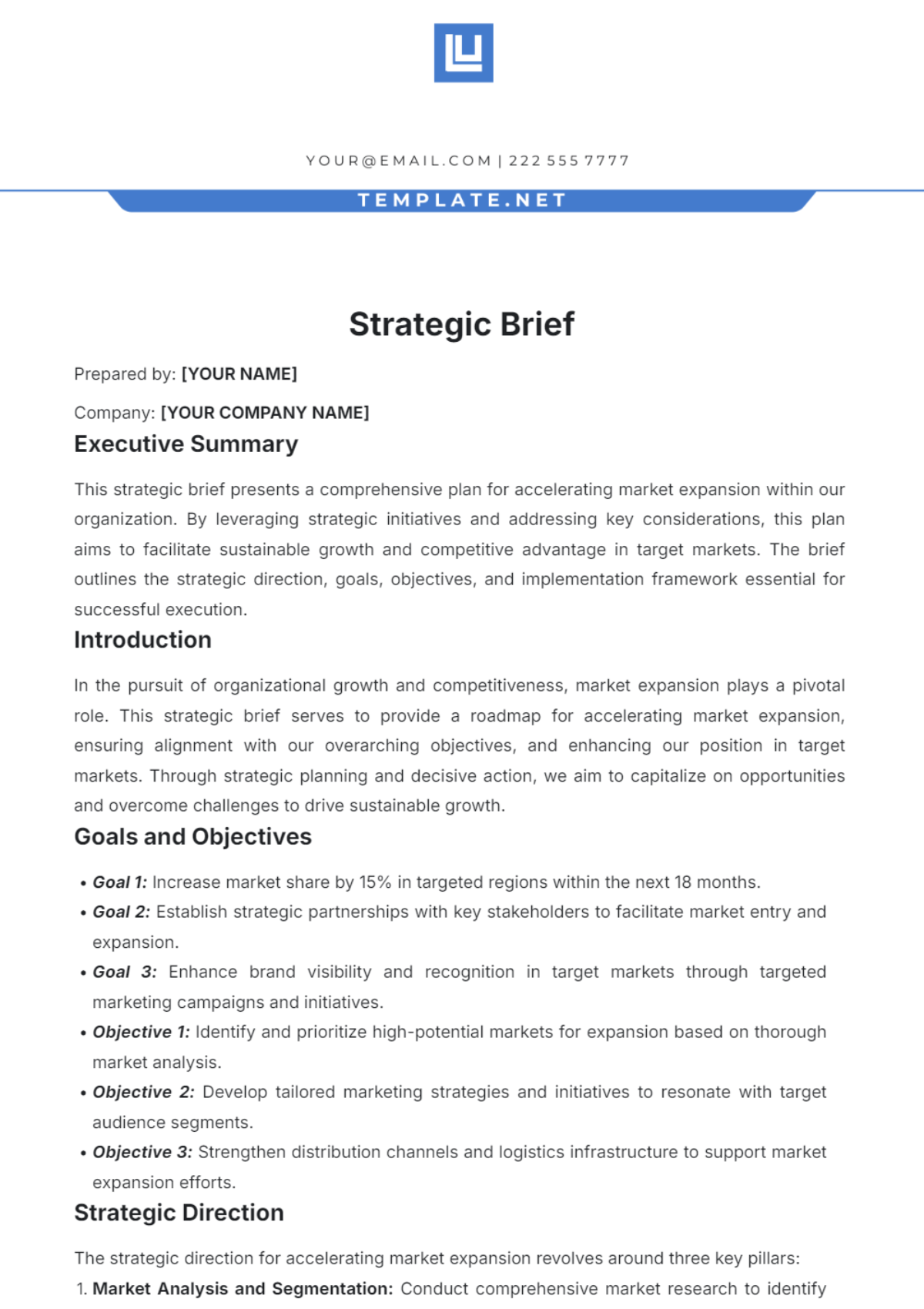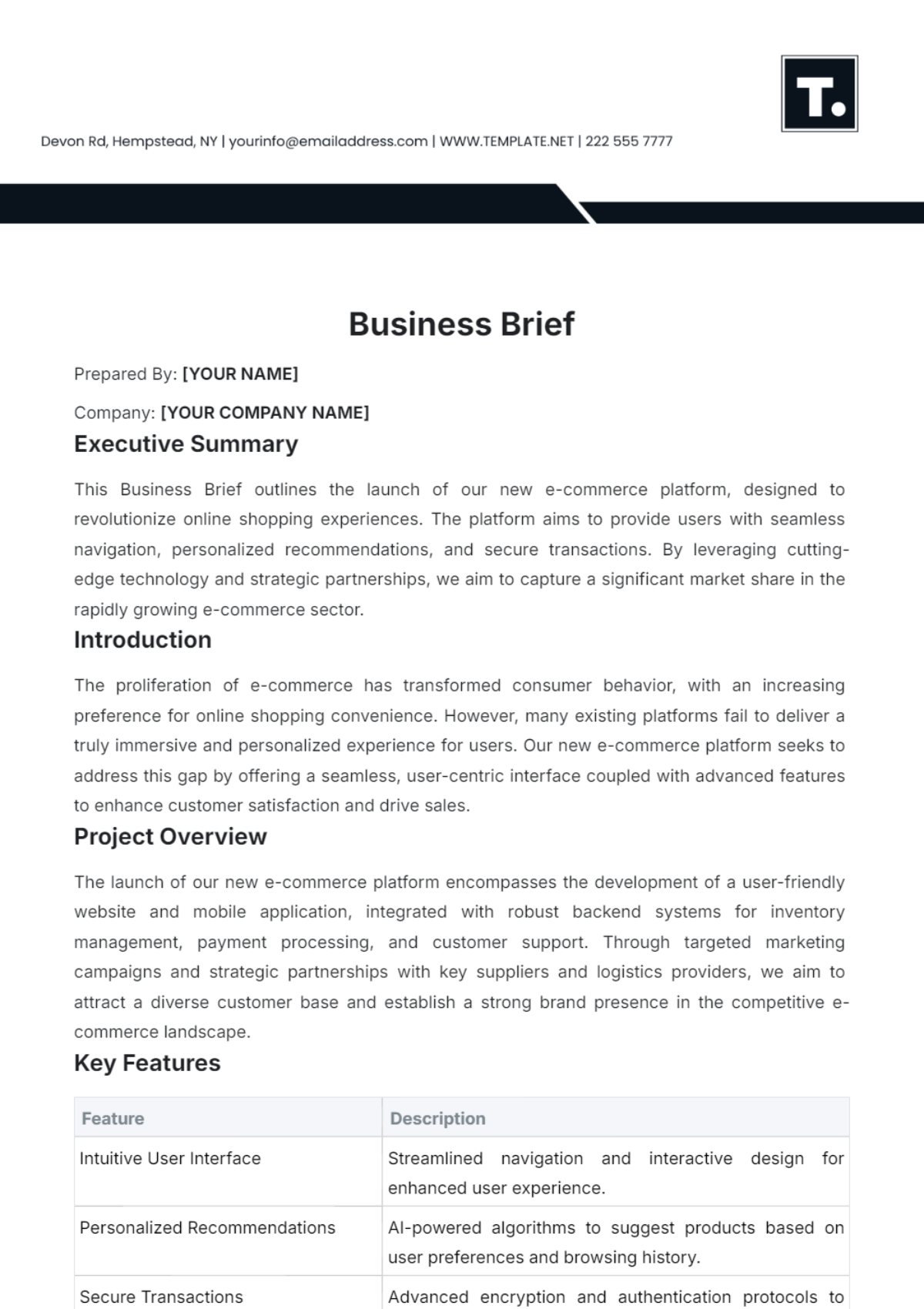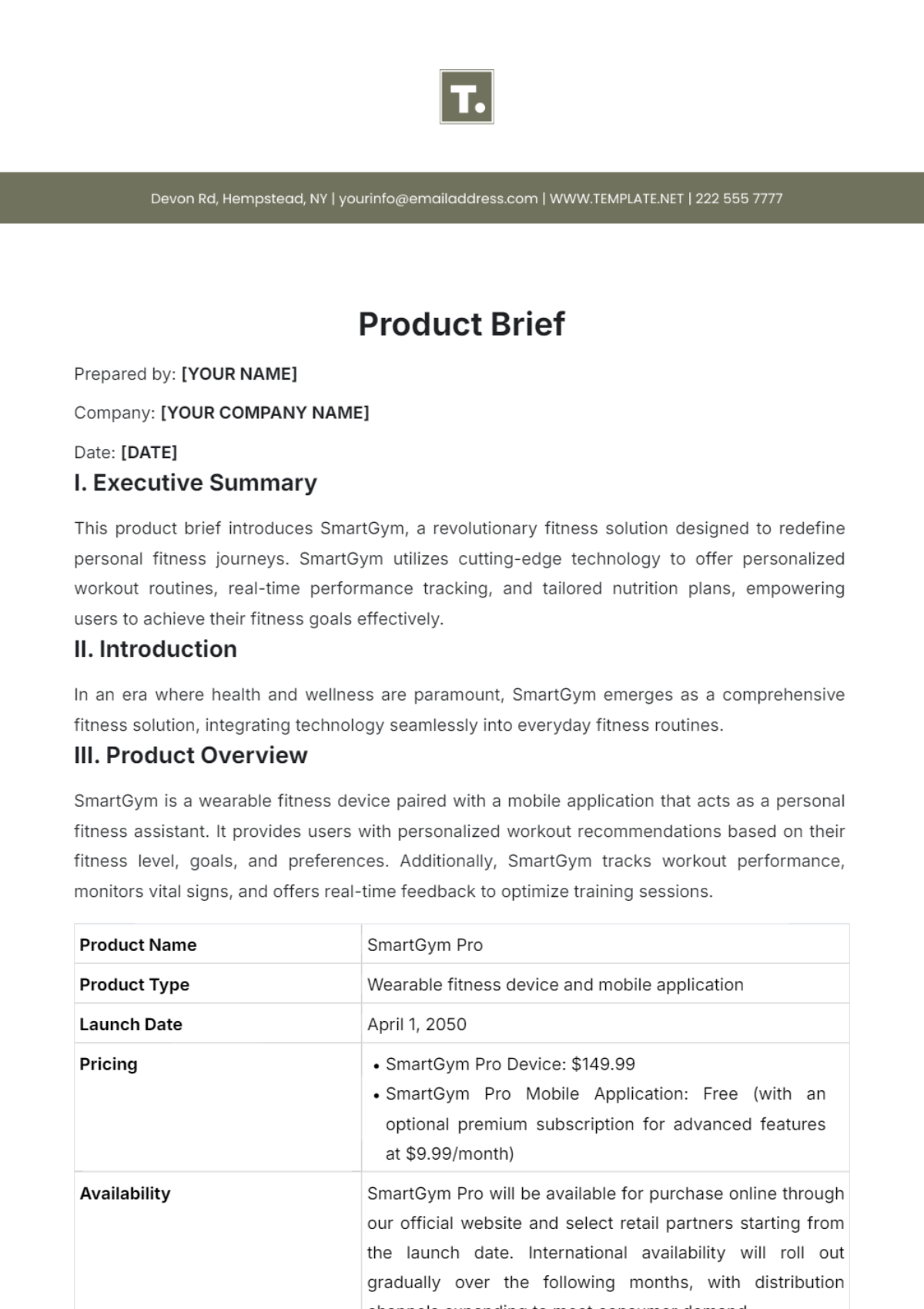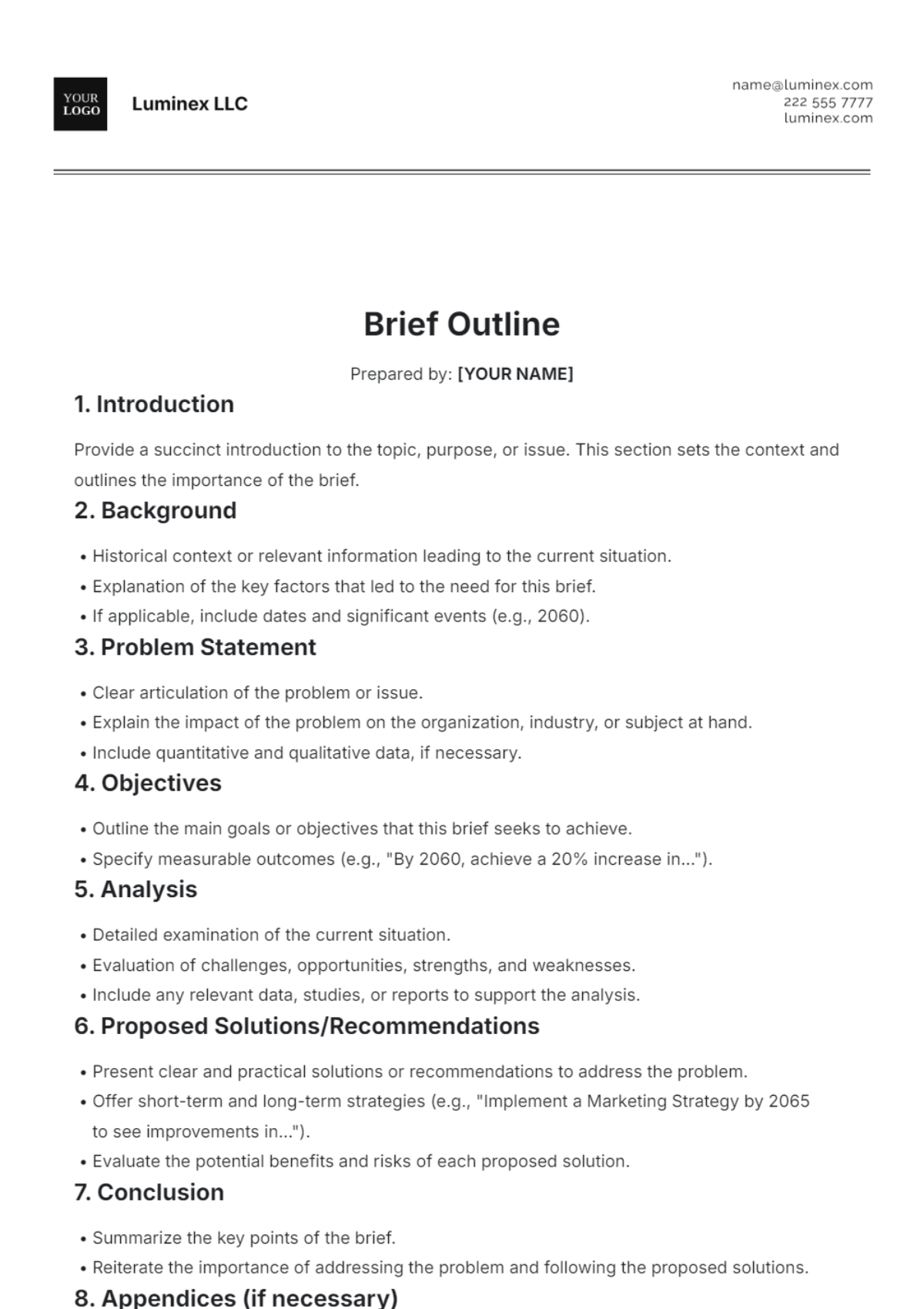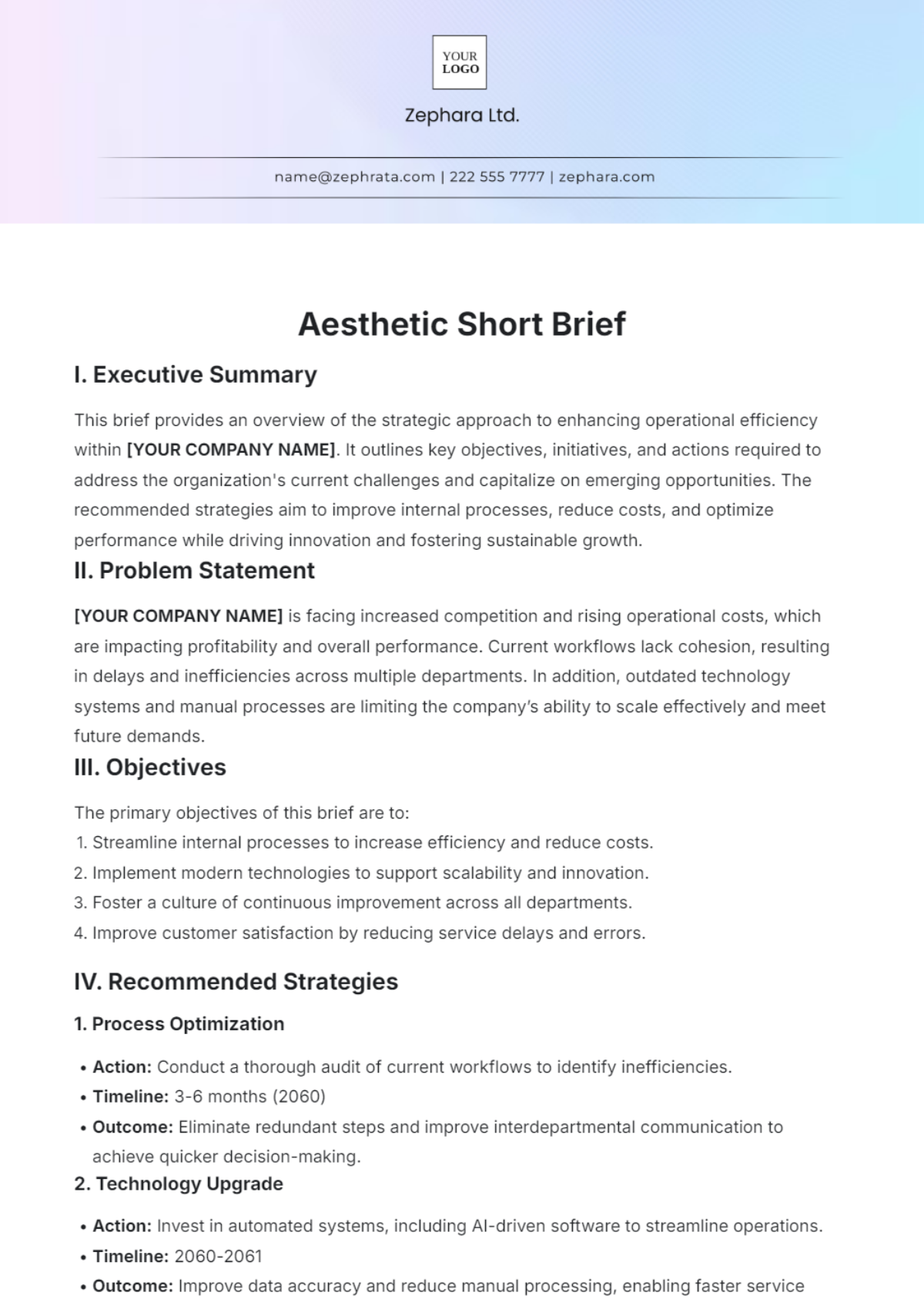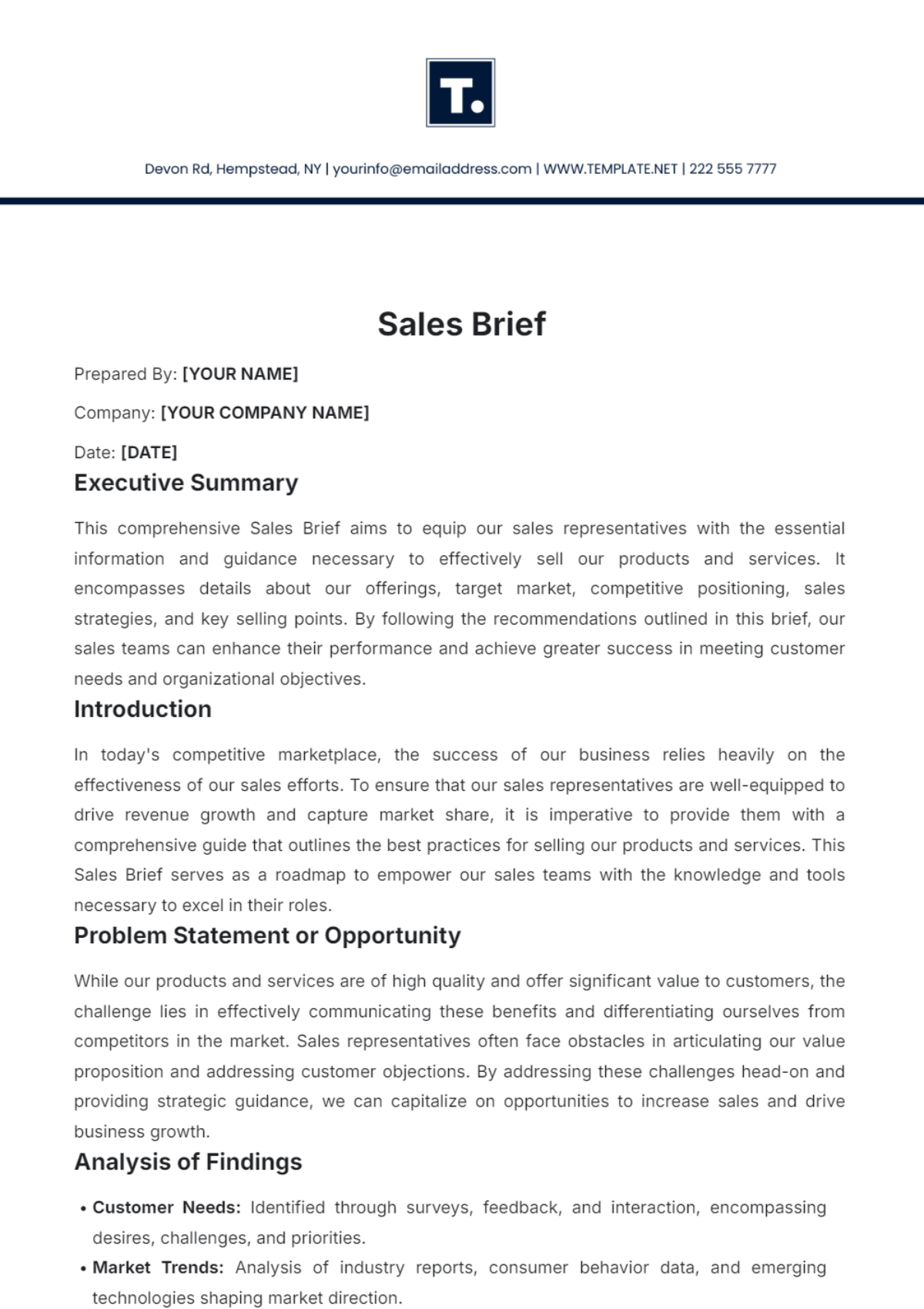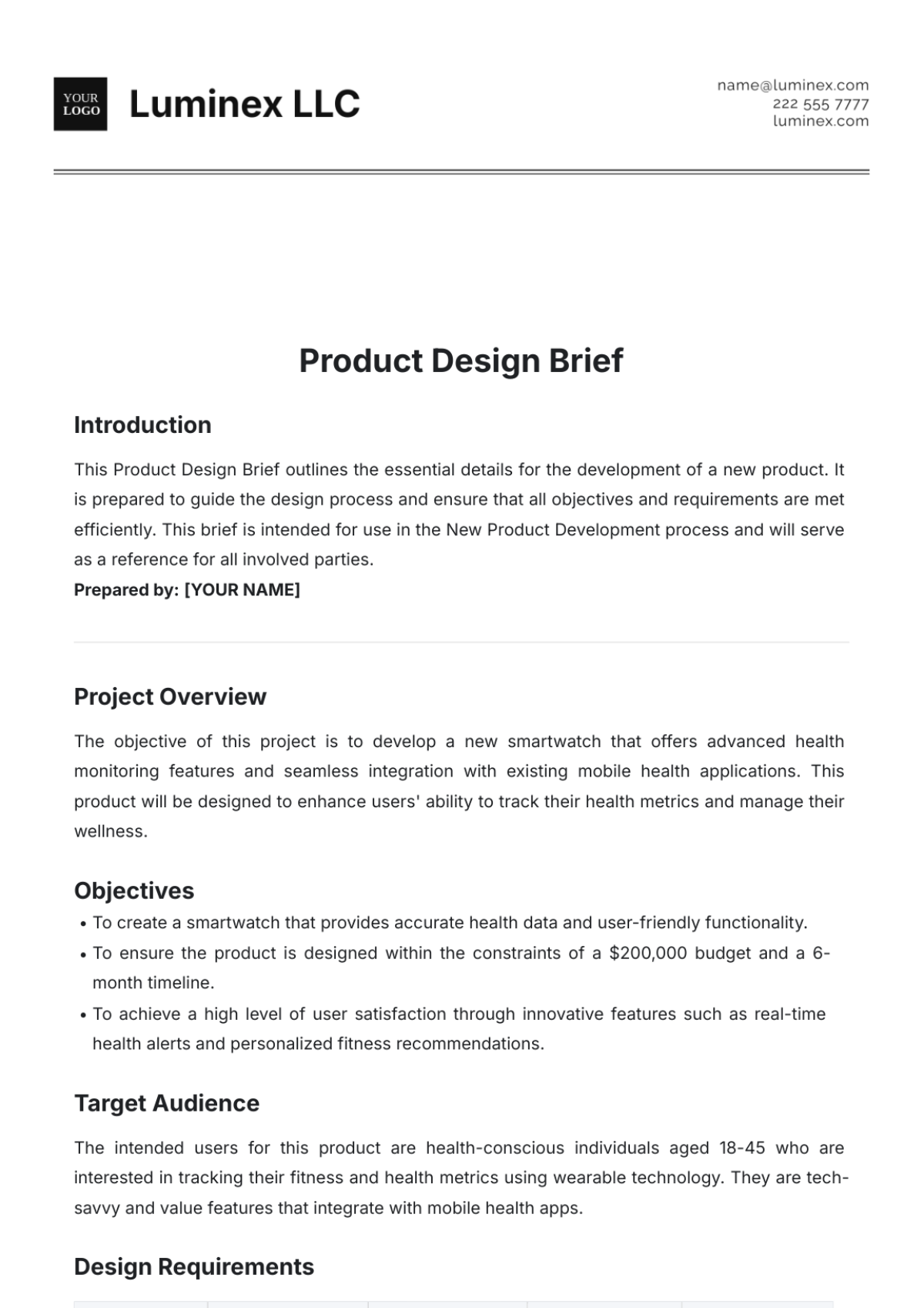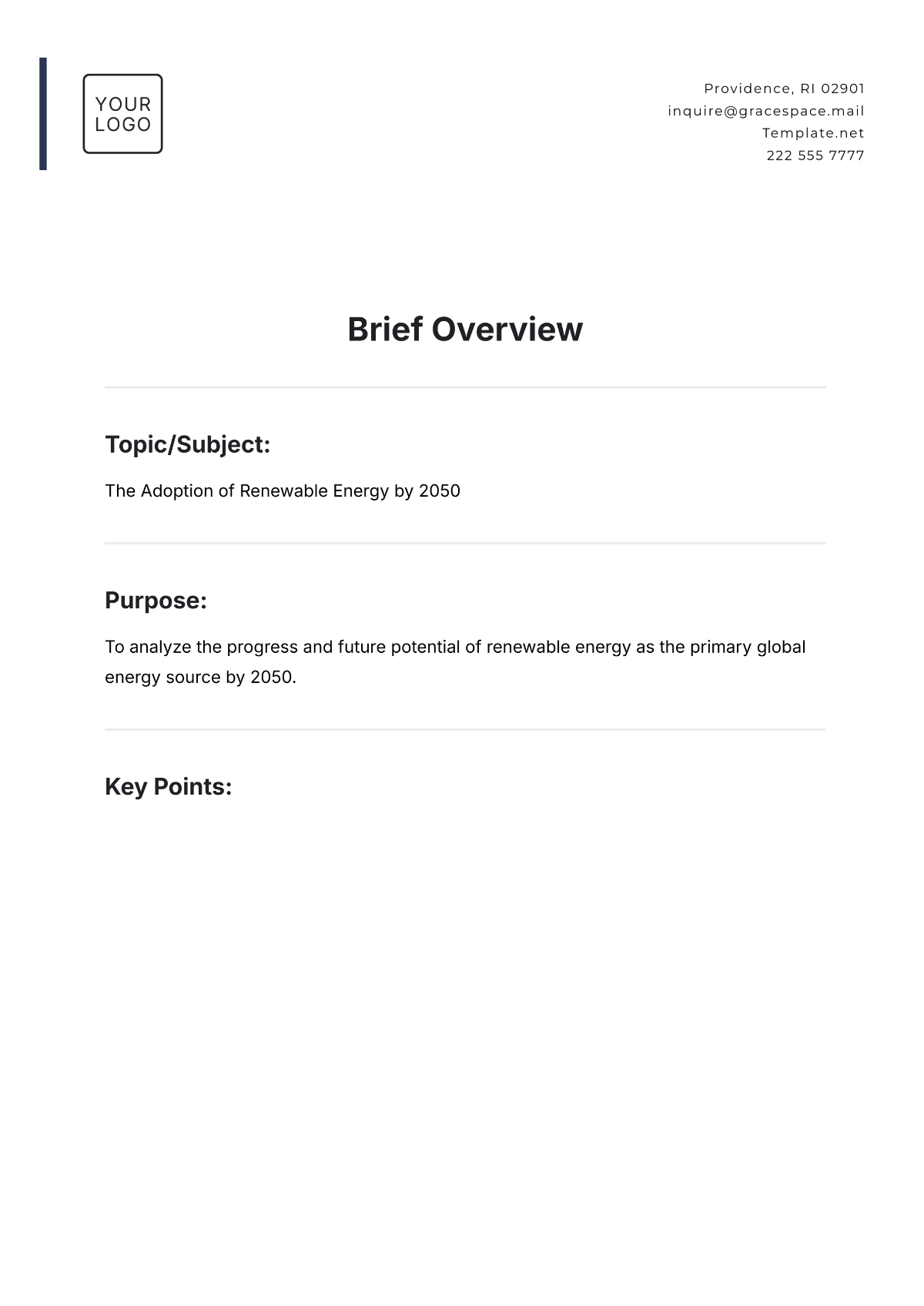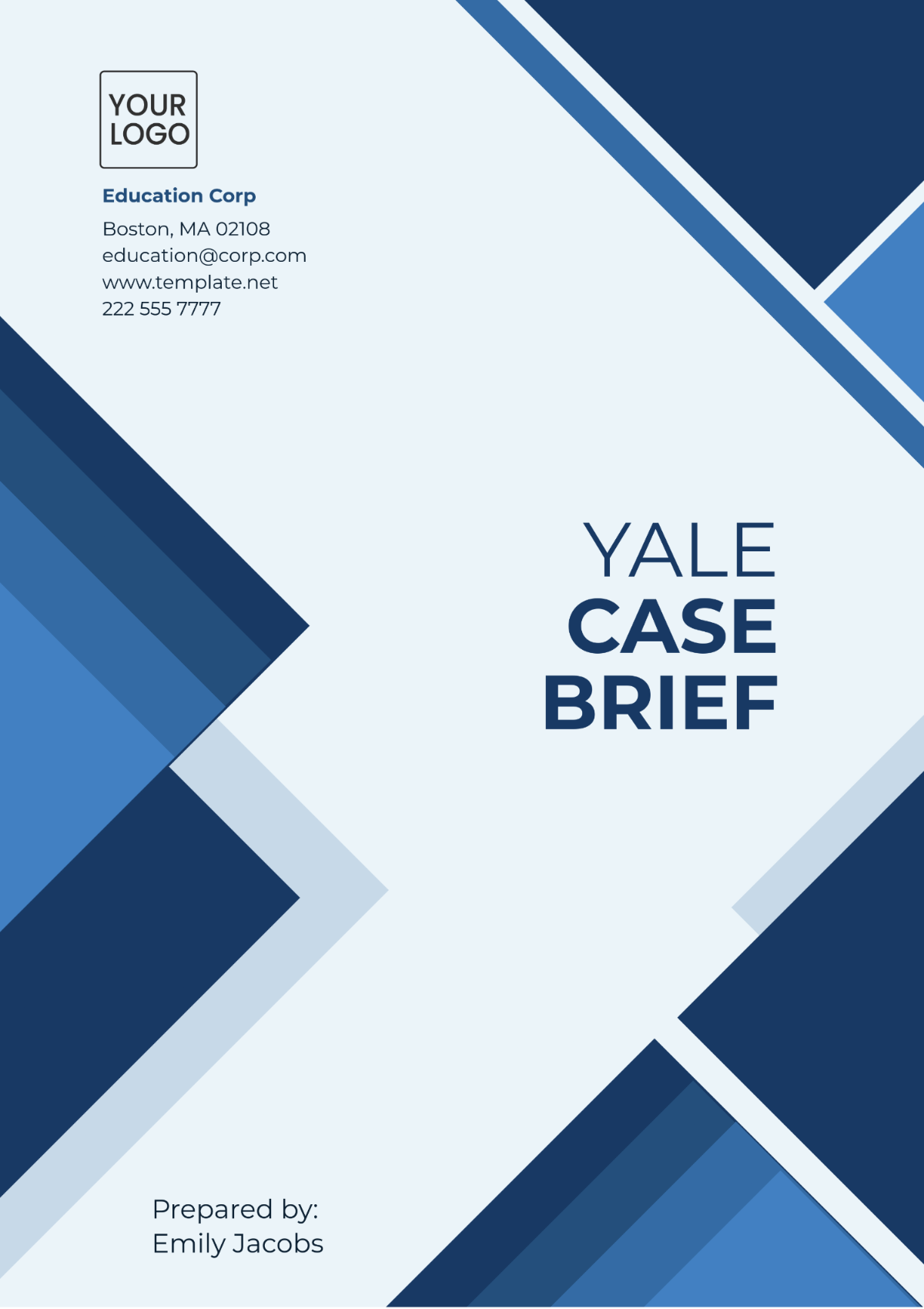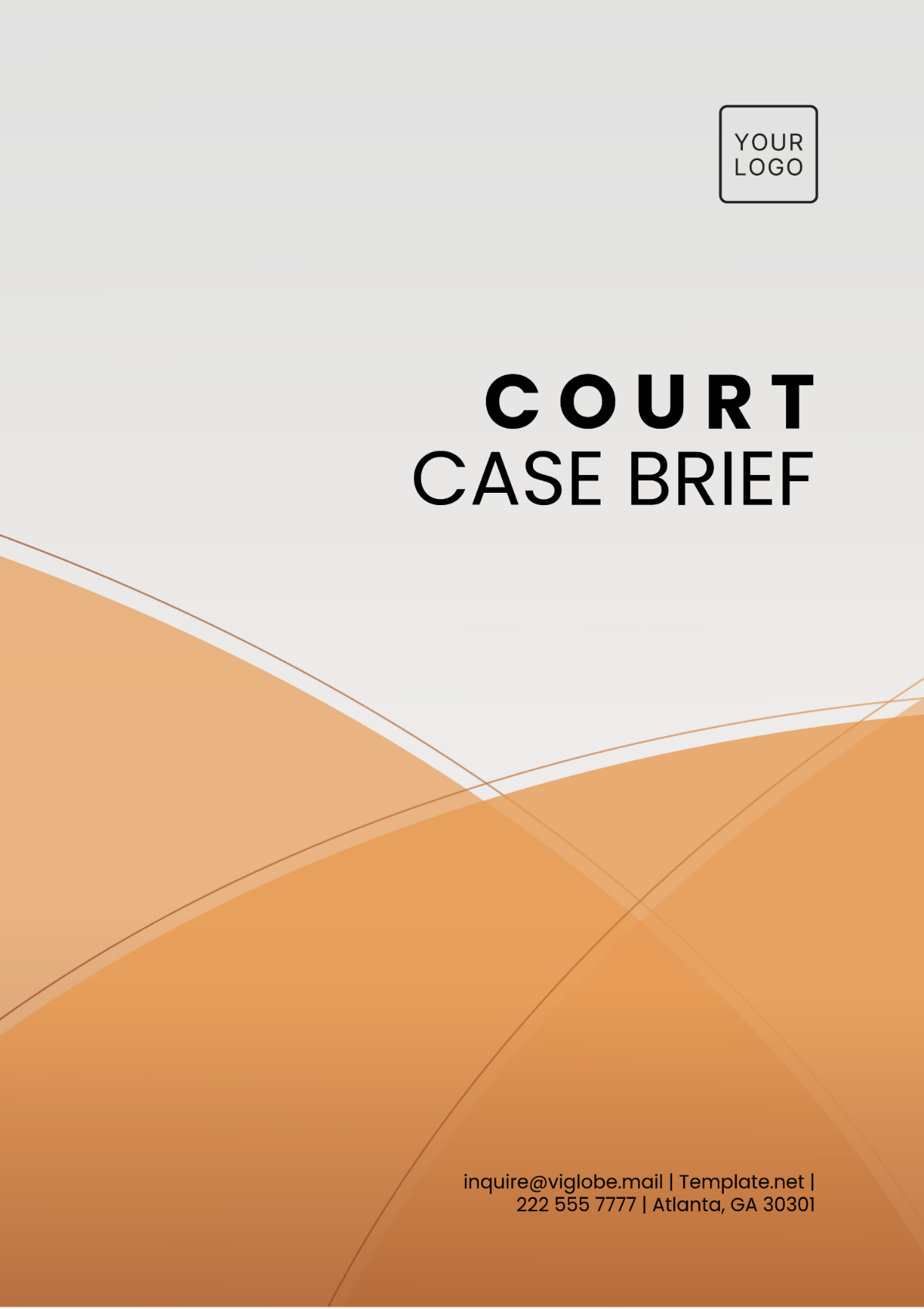Case Issues Brief
I. Case Information
Case Title: [Title of the Case]
Case Citation: [Case Citation Number]
Court: [Name of the Court]
Date of Decision: [Date of Decision]
II. Parties
Plaintiff(s):
[Name(s) of Plaintiff(s)]
Defendant(s):
[Name(s) of Defendant(s)]
III. Case Background
The case arises from a legal challenge to a Texas law that criminalized most abortions. Jane Roe, a pregnant woman residing in Texas, filed a lawsuit against Henry Wade, the District Attorney of Dallas County, seeking to overturn the state's abortion laws. Roe argued that the laws violated her constitutional rights to privacy and liberty.
IV. Legal Issues
The primary legal issues presented in the case include:
Constitutional Right to Privacy: Whether the Constitution protects a woman's right to terminate her pregnancy.
State Regulation of Abortion: Whether state laws restricting access to abortion are constitutional.
Governmental Interest in Protecting Fetal Life: Whether the state's interest in protecting fetal life outweighs a woman's right to choose abortion.
V. Facts
The following key facts are pertinent to the legal issues in this case:
Jane Roe, a pseudonym for Norma McCorvey, was unable to obtain a legal abortion in Texas due to restrictive state laws.
Roe challenged the constitutionality of the Texas abortion laws, arguing that they infringed upon her fundamental rights.
The Supreme Court granted certiorari to review the case and address the complex legal and ethical questions surrounding abortion rights.
VI. Arguments
A. Plaintiff's Argument
The plaintiff contends that:
The right to privacy encompasses a woman's decision to terminate her pregnancy.
State laws criminalizing abortion impose an undue burden on women seeking to exercise their constitutional rights.
B. Defendant's Argument
The defendant argues that:
States have a legitimate interest in protecting fetal life and regulating abortion to safeguard maternal health.
The Constitution does not explicitly guarantee a right to abortion, leaving the issue to be determined by individual states.
VII. Court's Decision
The court's ruling on the legal issues is as follows:
The Supreme Court recognized a woman's right to choose abortion as part of her fundamental right to privacy under the Due Process Clause of the Fourteenth Amendment.
The court held that states may not unduly burden a woman's right to terminate her pregnancy, especially during the first trimester.
The state's interest in protecting fetal life becomes compelling only in the later stages of pregnancy, allowing for reasonable regulation of abortion procedures.
VIII. Legal Principles and Precedents
To support its decision, the court relied on the following legal principles and precedents:
Right to Privacy: Established in Griswold v. Connecticut (1965), the right to privacy encompasses personal decisions related to marriage, family, and reproduction.
Roe v. Wade (1973): The landmark decision affirmed a woman's right to choose abortion within certain limits, based on trimester framework.
Casey v. Planned Parenthood (1992): Clarified and reaffirmed the essential holdings of Roe, while allowing states to impose restrictions on abortion, provided they do not impose an undue burden on women.
IX. Analysis
A. Legal Analysis
In analyzing the case, the court considered:
The historical development of the right to privacy and its application to reproductive rights.
The balance between a woman's autonomy and the state's interest in regulating abortion.
The implications of the court's decision for future abortion-related legislation and litigation.
B. Implications
The court's decision has significant implications for:
Women's reproductive rights and access to abortion services nationwide.
The role of the judiciary in protecting individual liberties and safeguarding constitutional rights.
The ongoing debate surrounding abortion laws and the intersection of morality, ethics, and law.
X. Conclusion
In conclusion, Roe v. Wade represents a pivotal moment in American jurisprudence, establishing a woman's right to choose abortion as a fundamental constitutional principle. The case underscores the importance of protecting individual liberties and ensuring reproductive autonomy for all individuals.

